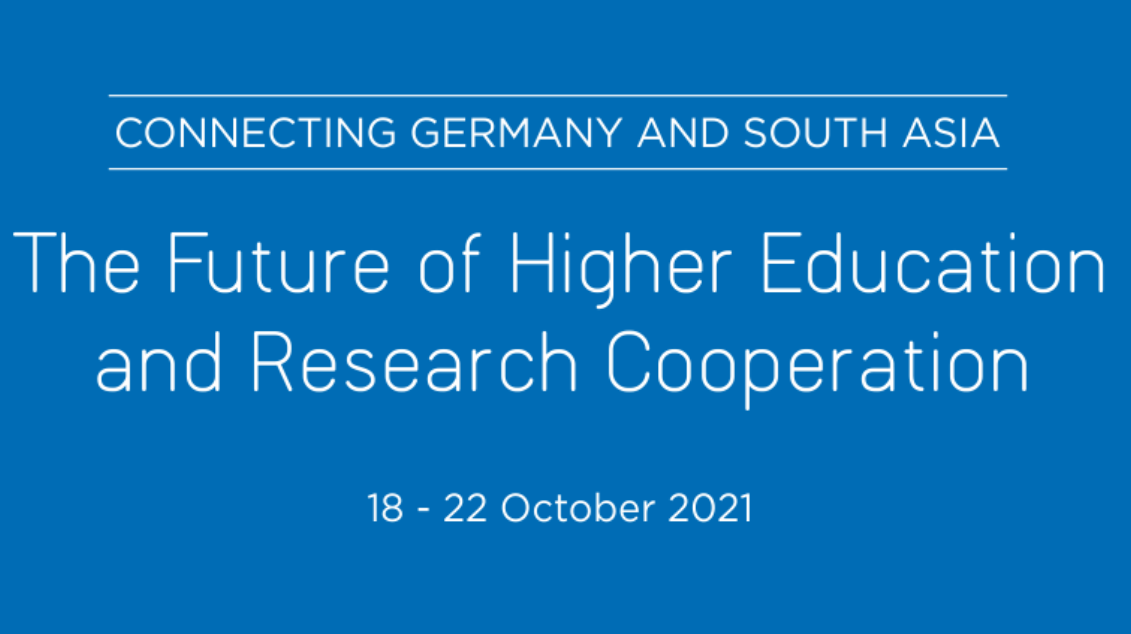India as a partner country for German universities – Conference “Connecting Germany and South Asia”

(15.10.21) India and Germany are closely connected – and not just through trade and parallel political interests. Between them, there is also considerable exchange of people. A significant part of this takes place in higher education. For example, 25.000 young Indians currently study in German institutions. And this figure keeps rising. While the total number of foreign students in Germany increased by 4%, the number of Indians in German universities jumped by 20% in the winter semester 2019-20, consistent with the strong growth in previous years. (Source: DAA(externer Link))
It’s not just the Indian students themselves who benefit from their study in German universities. While they are in Germany, the students are ambassadors of their home country. And those who return to India then turn into ambassadors of Germany. This has positive effects in every sector in which international cooperation is of value. Not least in higher education and research.
It is important to realize, however, that the potential is far from exhausted. “For someone like me, who is convinced of the value of international exchange, 25.000 is a great figure,” explains Dr. Vaibhav Agarwal of DFG’s India Office. “However, not everything is perfect. For example, we currently still see very few Germans coming to study in India. Also, the existing mutual interest could be turned into actual durable institutional partnerships, for instance between universities.”
Dr Agarwal is drawing attention to important unutilized chances. Here, Indian and German stakeholders could be about to make some progress: next week, a large South-Asian-German conference entitled “Connecting Germany and South Asia – The Future of Higher Education and Research Cooperation” will take place. The conference, in which DFG will also participate, allows meetings between universities from Germany and South Asian countries to take part in policy discussions and also talk about possibilities of cooperation. 199 Universities have already registered for the event.
“We at DFG are much looking forward to the conference”, explains Dr Jennifer Gronau of DFG’s International Cooperation division. “Although the DFG funds research projects rather than institutional partnerships, we understand that many excellent research ideas are born during meetings or exchanges between institutes.” A number of colleagues from DFG’s Head Office and India Office will be present at the conference and are happy to discuss funding opportunities for international research collaboration from DFG.
Discussing international collaboration in higher education, Dr Gronau puts particular emphasis on a particular kind of university. “The conference could be of particular interest to Universities of Applied Sciences (Hochschule für Angewandte Wissenschaft, HAW, in German). Many Indian universities are quite similar to German HAWs. With a strong emphasis on teaching, but with growing capacities in research. A little closer to questions of application, but not without strong competencies in basic research. Regionally anchored and with ties with local industry – if you think about it, many Indian universities really have a lot in common with our German HAWs and may, hence, turn out to be ideal partners.”
The online conference will be hosted by the German Academic Exchange Service (DAAD) and the Association of Indian Universities (AIU) and will take place from 18 to 22 October 2021. It can be accessed under